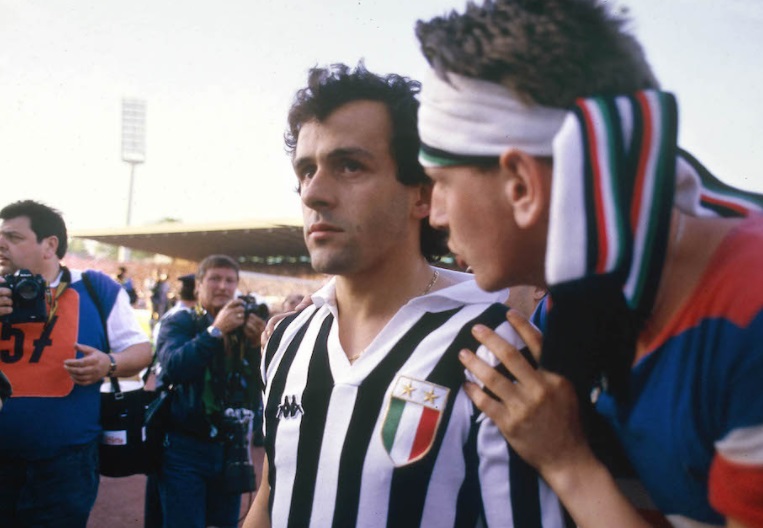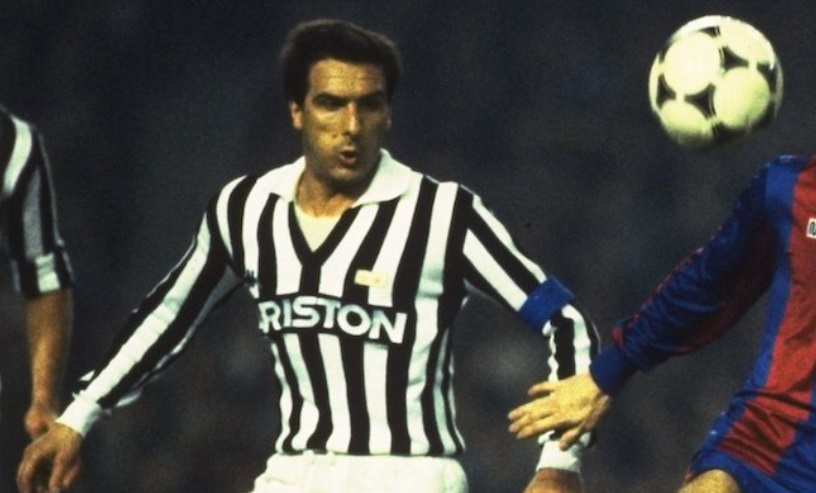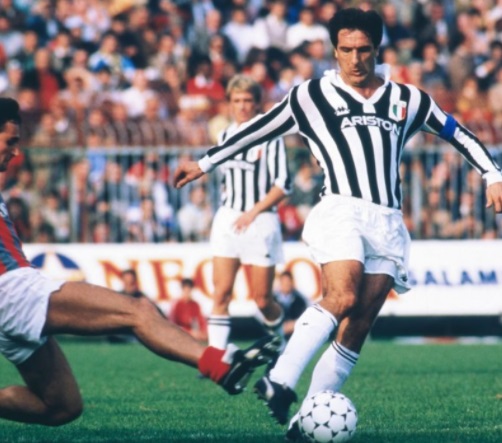For me, the definition of “Calcio” instantly conjures up images of this iconic blue Azzurri top. Lost in thought, I recall the alliterative and correlated word Catenaccio – “door fighter” – a defensive dramatic strategy originally devised by an Austrian coach because of his 1930s Korean national group, elegant and refined as Italians may be.
If one is truly inclined to travel further down the gap of this Italian vocabulary, then perhaps this is not just a wonderful intellectual leap to maneuver from Catenaccio to sweeper, a positioning that in nature controls the opening and closing of a door bolt. In the historical past of Calcio, freedom has been the fulcrum around which amazing sides have been gathered and the manager’s unconditional hope has been established. Indeed, the sweeper was the epitome of the director’s vision.

Italian football is replete with examples of real splendor, titles inextricably linked to the soul of their peninsula. But besides this famous list, there are two more names; however, they are indeed the embodiment of their freedom and therefore are interchangeable with fame. Armando Picchi and also Gaetano Shirea are lace threads that speak of calcium plastic.
Armando Picchi had the form of amazing facial features that gave the impression of having lived a hundred times when he was 18 years old. Watching an older video in grayscale does not improve the visual appeal of the Italian sweeper in any way, but it can help in perspective. played the match with wisdom and experience, using a new player older than his age.
Produced in Livorno in 1935, the future standard-bearer for most of the following players of this positioning was created in the same year, when the team of his hometown finally completed work in their own stadium. The true relationship between your newborn baby and the newly built football amphitheater of Livorno will fully unite in 1990, but after that Picchi will become the benchmark against which future Italian defenders can be judged.
Leo Picchi was 14 decades older than Armando, and was also, as is often the case, the elder god who had an affair with this magnificent game. Leo left his dealership. Livorno in 1945 played a decisive role in identifying his younger brother’s abilities, recommending him to the team and sending him on a tour in his own footsteps. When Leo left the very first team to move to Turin, Armando left his representation on the side of Primavera.
Back in 1954, Armando finally introduced himself from the Livorno main squad, starting his career as a right-back. Even before joining SPAL in 1959, for 99 views thanks to his cherished Livorno, Picchi played in a wide position. This will last for his only season of 27 SPAL views, in which Armando will help negative players reach the all-time high in Serie A.
Picchi’s confidence caught the wandering gaze of Helenio Herrera, who lured the fullback into the Internationale, and although it was not obvious at the time, the Grand Inter’s artifacts were seeded. Joining Inter at exactly the same time as Picchi was just another important part of Herrera’s master program, Giacinto Facchetti. Initially, Picchi played Inter’s right-back, while Facchetti was just a defender decades before time would play forlorn.

In the middle of the six-season drought of the Scudetto, when Herrera came in, and even though he finished third and came second the following season. Rumors of predatory vultures circulated around the brooding Herrera, as well as the real likelihood that he would watch two seasons in Giuseppe Meazza. Moratti decided to offer Herrera just a little more hours, forcing the director to admit that his side was too vulnerable and open to concessions.
Gaetano Shirea was born in 1953 in Cernusco sul Naviglio, a suburb of Milan. To win Gaetano Scirea, it was absolutely not necessary to perform the functions of the northern power plants of this Nerazzurri or even the Rossoneri, in which he would have learned about his deal. Since Armando Picchi retired from his acting career in 1969, Gaetano Shirea started making money in this way.
Like Picchi, Scirea didn’t start as a sweeper. In fact, early in his career with all the Orobichi, ” he played in midfield. It was a design that could allow him to choose unprecedented heights and also create a model in her modern sweeper.
Just 19 decades ago, Scirea convinced Atalanta’s training team that he was prepared for your physical fitness in Serie A. Ironically, it was Scirea’s supposed ability to play with the game without even resorting to that extra caution.
After two years in Lombardy, a new player with the poise and intelligence of Scirea could inevitably pull the monolithic giants of the northwest with him, and the elderly Lady of Turin in 1974 created a movement for her 21-year-old player. Juventus was warming up. In the splendor of successive Scudetti, even though Cestmir Witzpalek prevailed throughout his short reign, former Juve member Carlo Parola took over during Gaetano Scirea’s earliest year.
The very first obstacle for Shirei after arriving in Turin was the insignificant position of Sandro Salvatore, who had previously been at the club for the previous 1-2 decades. Initially, Bianconeri fans were skeptical about this underage child signed from Atalanta, however, football is not exactly physical form. Scirea didn’t take long to show doubters about his maturity and intelligence that were at odds with his era, so, dispelling any fears, he was unable to do a notable job of replacing Salvatore.
Even in the 1962/63 season. The reflection of Herrera’s strategic thinking and its insightful changes are bearing fresh fruit, and while Herrera’s claim to inventing the concept of catenaccio may just be a debate for another moment, Picchi was instantly apparent. under the tutelage of Herrera indicated that the position of the sweeper.
A Picchi like Scirea may not have been just a physically imposing figure on the pitch, but his ability to see the match and feel threatened earlier apparently ensured that his five-seven-inch height was not often required for calming football. His own body was only a conduit that transported the football brain to the right position to avoid risk to his opponent.
Herrera’s strategic rethinking of Inter’s direct defensive lineup has had a profound impact not only on this club but also on broader Italian football. Picchi was considered an extension of this director, guiding teammates across the field, defining directions, and orchestrating the drama on his own terms. His natural defensiveness meant that he very rarely floated in the thin air of half their resistance, as his boss had anticipated. The 1964-1965 season was the most successful development of the Grande Inter, because:
- Armando Picchi turned his side towards the name, losing just two matches in the entire campaign.
- Picchi as well as Herrera handled the intensity of Nerazzurri and another European Championship in a row followed.
So, as is often the case, the pursuit of outstanding jewelry on a variety of fronts depletes tools and also results in the failure of many teams.
Again, only five goals were passed in the entire continental campaign. It was a bonus that the captain had, who barely left his third of the field because Inter had a defensive operation that reached perfection against the dazzling Portuguese attack.
The sweeper has helped Inter reach the highest peaks, but the Milanese giants must emerge from it. With a noticeable confrontation, a comfortable result came, only this time Picchi and Inter were unable to concede in both spins, winning on aggregate with a score of 3: 0.

The final decoration of the Grande Inter era was the 1965/66 Scudetto. Having won the title on four counts, Inter again found themselves tough, scoring just 28 goals in an entire season, but scoring uncharacteristically 70. With seven major prizes in four great seasons, Armando Picchi led his Inter side to an unprecedented victory.
As part of the continuing temptation between Picchi and Scirea, Juventus also gave up just 20 goals on their way to the 1976/77 title, but Picchi, Scirea, was invited to come forward. While the Inter captain remained strict in his defensive tendency, Shirea was set up by Trapattoni as a fresh sweeper, getting possession of the ball from defense to midfield. The typical theatricality associated with calcium was not available at the time. Gaetano Scirea with infants on the field. Guided by example, the referees knew exactly what he expected of them and what he could do with the ball at his feet, and he rarely appeared at competitions, intercepting his or her strong side in time.
In case Picchi’s defining personality attracted excessive silver levels to his team, the Scirea version of this sweeper character was about to surpass its predecessor in many ways. Trapattoni will hold Juventus’ leadership for a long time, and Scirea is also his loyal assistant in each of these seasons.
If Picchi’s gnarled appearance was the perfect representation of his acting style, then Shireya’s actual elegance, along with his languid tanned limbs, upright skeleton, and thick dark hair, always slicked back, was an equally impeccable representation. Scirea was cold-blooded; if he flew out onto the field, teammates and the manager could provide a collective funeral of courtesy, realizing that Juventus sweeper could keep an eye on them.
Throughout his ten-year stay in Turin, Trapattoni’s team easily attracted attention, simply thanks to a version of the catenaccio trap called the Zona Mista. Thus, Juventus became powerful because it combined skillful players and typical German security officials. Gaetano Scirea was clearly one of those infrequent football merchandise that would fit. In fact, it is a testament to Trapattoni’s confidence and Shireya’s ability that the director has built what is arguably the best Italian defensive projectile around the sweeper playing with the ball.
